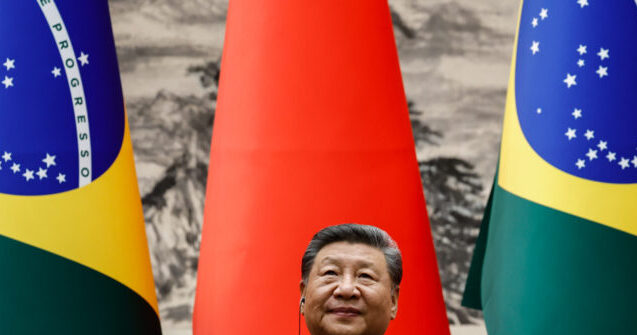Rare-Earth Standoff Threatens U.S.-China Trade Truce

The fragile trade agreement between the United States and China is under new strain, as Beijing appears to be dragging its feet on a key provision: the resumption of rare-earth mineral exports.
According to reporting by The Wall Street Journal and CNBC, the Chinese government has slowed approvals of export licenses for critical materials used in semiconductors, electric vehicles, and defense applications—prompting sharp criticism from President Trump and his trade team.
The rare-earth issue was a linchpin of the temporary tariff truce brokered earlier this month in Geneva. The Wall Street Journal reports that Vice Premier He Lifeng, China’s top economic envoy, agreed at the last minute to restart export flows in exchange for a 90-day suspension of escalating U.S. tariffs. In the wake of that deal, both sides paused most of the trade penalties they had imposed, briefly calming global markets.
But the detente may now be unraveling. In a Friday post on Truth Social, President Trump accused Beijing of violating the terms of the deal. “China, perhaps not surprisingly to some, HAS TOTALLY VIOLATED ITS AGREEMENT WITH US,” he wrote.
U.S. Trade Representative Jamieson Greer echoed the charge in an interview with CNBC, accusing China of “slow-rolling” its obligations.
The shift reportedly followed a U.S. Commerce Department warning issued on May 12 against the use of Huawei’s artificial intelligence chips, a move Chinese officials interpreted as a hostile escalation. The Journal reports that Chinese authorities responded by quietly tightening the already cumbersome process for granting export licenses, viewing the approval system itself as a strategic tool in the larger trade fight.
U.S. officials have pushed back, insisting that the Huawei guidance was not a new policy but a clarification of existing rules. So far, those assurances have failed to sway Beijing.
American companies—especially automakers—have reportedly raised the alarm with the White House. If the rare-earth supply disruption continues, some warned, production lines could face shutdowns similar to the pandemic-era halts.
Privately, some Trump officials had anticipated this risk. According to The Journal, negotiators in Geneva acknowledged the possibility that Beijing would renege. Still, they hoped the deal would hold long enough to set the stage for broader cooperation.
Instead, tensions have escalated. The Trump administration has moved to tighten controls on high-tech exports to China, including components vital to the C919 passenger jet—an aerospace project personally championed by President Xi Jinping—and design software used by Chinese chip firms.
In a statement to The Journal, a spokesman for China’s embassy in Washington criticized the U.S. for its “abuse of export control measures” and urged both sides to honor the Geneva consensus.
The administration has also launched new investigations into Chinese trade practices and floated possible new tariffs on pharmaceuticals and other strategic imports. And earlier this week, it began revoking student visas for Chinese nationals in U.S. universities—a move Beijing called “politicized and discriminatory.”
Treasury Secretary Scott Bessent, who helped broker the Geneva deal, told Fox News that resolving the impasse may require another direct call between President Trump and President Xi. Trump told reporters Friday he’s open to a conversation, saying he hopes the two leaders can “work it out.”
But Qiushi, the Communist Party’s flagship journal, sounded a more pessimistic note. “The U.S. turned away from the negotiating table and immediately intensified its pressure on China’s semiconductor industry,” it said in a Wednesday commentary. “This shows that resolving trade issues won’t happen overnight.”